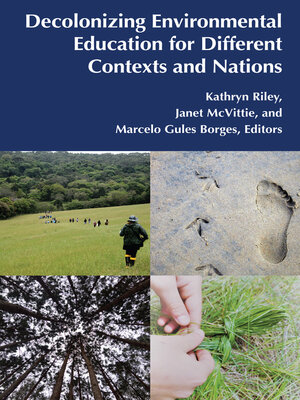Decolonizing Environmental Education for Different Contexts and Nations
ebook ∣ (Post-)Critical Global Childhood & Youth Studies
By Márcia Aparecida Amador Mascia

Sign up to save your library
With an OverDrive account, you can save your favorite libraries for at-a-glance information about availability. Find out more about OverDrive accounts.
Find this title in Libby, the library reading app by OverDrive.



Search for a digital library with this title
Title found at these libraries:
| Library Name | Distance |
|---|---|
| Loading... |
As Dominant Western Worldviews (DWWs) proliferate through ongoing structures of globalization, neoliberalism, extractive capitalism, and colonialism, they inevitably marginalize those deemed as 'Other' (Indigenous, Black, Minority Ethnic, non-Western communities and non-human 'Others', including animals, plants, technologies, and energies). Environmental Education (EE) is well-positioned to trouble and minimize the harmful human impacts on social and ecological systems, yet the field is susceptible to how DWWs constrain and discipline what counts as viable knowledge, with a consequence of this being the loss of situated knowledges. To understand the relationships between DWW and situated knowledges and to thread an assemblage of ontological views that exist in unique contexts and nations, authors in this book take up decolonizing methodologies that expand across theories of Indigenous Knowledges (IK), Traditional Ecological Knowledges (TEK), two-eyed seeing, hybridity, and posthumanism. As EE opens to emplaced and situated socio-cultural and material stories, it opens to opportunities to attend more meaningfully to planetary social and ecological crisis narratives through contingent, contextualised, and relevant actions.







